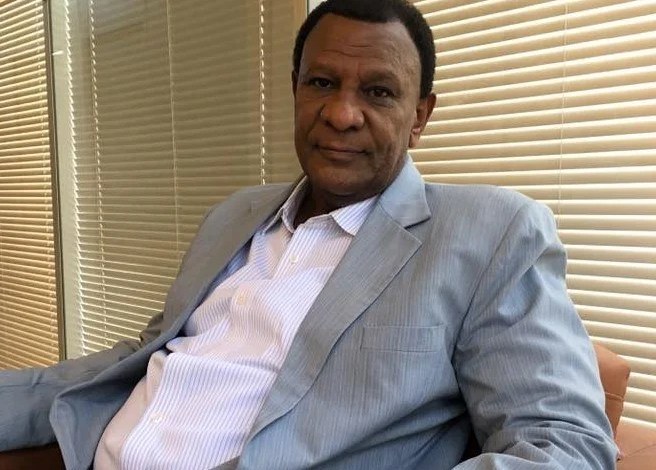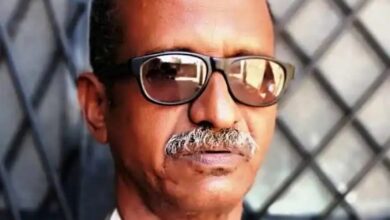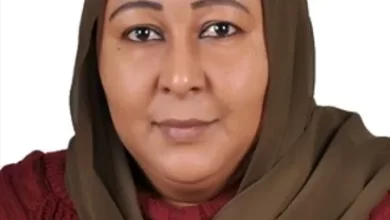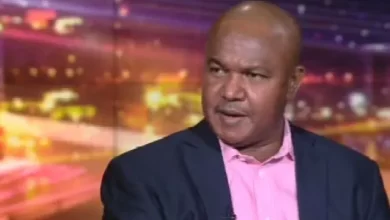Separating the Army from the Party and Movement
Haider Al-Makashfi

During his visit to the Kingdom of Saudi Arabia (KSA) as part of his Gulf tour, which also included the United Arab Emirates (UAE) and Qatar, and despite the fact that Saudi Arabia and the United States were the main sponsors of the Jeddah Initiative to end the war in Sudan, Trump’s visit failed to include any new statements or initiatives regarding the Sudanese crisis.
Sudan wasn’t mentioned in official speeches or press conferences, except for a general reference made by Saudi Crown Prince Mohammed bin Salman, which stated, “We will continue our efforts to end the crisis in Sudan through the Jeddah Platform, which enjoys Saudi-American sponsorship.” Based on the aforementioned, can it be said that Trump’s visit to the Gulf actually ignored the issue of the war in Sudan? As it wasn’t addressed publicly or on the announced agenda, indicating that the Sudanese crisis wasn’t amongst the priorities of this diplomatic tour.
Personally, and based on several pieces of evidence, I don’t believe that the Trump Administration completely and totally ignored the catastrophic Sudanese war crisis. During his first term, the Trump Administration was the one that introduced the Democratic Transition Protection Act, which included a number of incentives, in a policy that can be described as a carrot-and-stick policy. It is also well-known that Trump’s policy since his first term has been to deliberately ignore multilateral institutions such as the United Nations (UN) and the African Union (AU), and to shift US policy in the region to the path of alliances with specific countries such as Saudi Arabia, Egypt, the (UAE), and Qatar, in an effort to -solely- manage certain issues, including, for example, the Sudanese issue, which is entrusted to the Kingdom of Saudi Arabia, according to Statements by the Saudi Crown Prince.
Furthermore, the Trump Administration’s approach, which has extended since his first term and was clearly evident during his current visit to the Gulf States, is based on three main axes: strengthening economic relations, ensuring the effectiveness of American aid by reducing ineffective spending, in addition to combating extremism and radicalism, and ending wars. As long as the Sudanese war issue has been completely entrusted to the Kingdom of Saudi Arabia, Trump no longer needs to refer to it, as he would most likely leave the matter up to the judgment of the Saudi Crown Prince, whom he referred to in the statement we quoted. However, suppose Trump intervened directly in the Sudanese war crisis and filled the media with statements, what would he do other than try to push the warring parties to negotiate? It is highly unlikely that he would intervene in a blatant manner to end the war, such as by imposing a no-fly zone, sending forces to separate the combatants, or any other military measure.
The problem, then, isn’t Trump’s failure to refer to the war in Sudan, but rather the problem lies with the two warring parties themselves, particularly the Sudanese Military Command, which we can bestow with the borrowed title of “Mr. No” as Mr. Abdel Wahid Mohamed Ahmed Al-Nur dubbed it previously, which has effectively become “Mr. No” by rejecting all platforms made available for discussion of the crisis, moreover, even when the Military leadership participated and reached preliminary understandings between Lt. Gen. Al-Kabbashi and Lt. Gen. Abdel Rahim Daglo in the Bahraini capital, Manama, the Sudanese Army leadership was quick to disavow the preliminary understandings, nipping that particular idea in the bud.
At such juncture, its rather noticeable that the Sudanese Army Command is completely beholden to the lobby of the (Balabsa), particularly the Islamists (Al-Kizan). Whenever news leaks of a meeting between the two warring parties, this group quickly launches a fierce campaign against it. Then the Army leadership, in turn, rushes not only to deny the leak but also to affirm the continuation of the war until the Rapid Support Forces (RSF) are eliminated. There is no logical explanation for this other than the fact that the Army leadership is completely under the influence and grip of the Islamists (Al-Kizan) and lacks the genuine will to pursue any negotiation opportunities that may be on the horizon.
Unless the Sudanese Army leadership is liberated from the Islamists’ hegemony and control, to successfully achieve its own will, the situation will remain as it is. Naturally, the Army leadership won’t be liberated from the Islamists’ grip unless the Sudanese Army is separated from the Party and the Movement, by which we mean the National Congress Party (NCP) and the Islamic Movement. It is well known what these two -the Party and the Movement- have done to the State since the latter seized power through its ill-fated coup. They not only controlled the Sudanese Armed Forces (SAF), but managed to transform the Party, the Movement, and the State into one entity.
The Administration was integrated into the Party, the Party expanded its influence, and the State was placed at the service of the Party. The head of State is the head of the Party, the President’s assistant in the Republican Palace is the Vice President of the Party, the Governor is the head of the Party in the state, the Minister of a certain ministry is the Secretary of a certain sector in the Party, and so on. The entire State is embedded within the Party, including the…, the…, and the… of the institutions and bodies that you’re well aware of, which make up the foundation of any State.
In short, the (NCP) has placed the State as its hostage, at its beck and call, from the top of its executive body to the smallest local unit. It has tightened the noose around its neck, with no distinction between political affiliation to the Party and Movement on the one hand, and the general affiliation to the position. This is that, and the opposite is true as well. You don’t know what ine does for the Party, or what one does for the position. The rope of the State has become intertwined with the arrow of the Party, until all of Sudan, from one end to the other, has become a hostage in its hands. It has made everything and everyone in it like a servant of the Sheikh (Faki), all are forced to serve him, as he is free to drive them wherever he pleases and impose upon them whatever he pleases, sometimes by force, coercion, and tyranny. He doesn’t permit them to see anything other than what he wants them to see, and they can only hear what pleases him, in conclusion, all is accomplished at times by using carrots, enticement sometimes, and flattery at other occasions.
Although the Empowerment Removal Committee (ERC), formed after the December Revolution, sought to rectify this inverted situation and the distorted image of the State by ending the Party-State in favor of the nation-State by separating the Party from the State and freeing it from its control, the (October 2021) Coup, which was carried out by the leadership before the latter discovered the true intentions of the coup and disavow it, as it was later made clear that the main goal of the coup was to eliminate the revolution and return the Islamists to power. This is the scene that has been present to this day since the October coup, as the Sudanese Army leadership remains under the control of the Party and the Movement.





